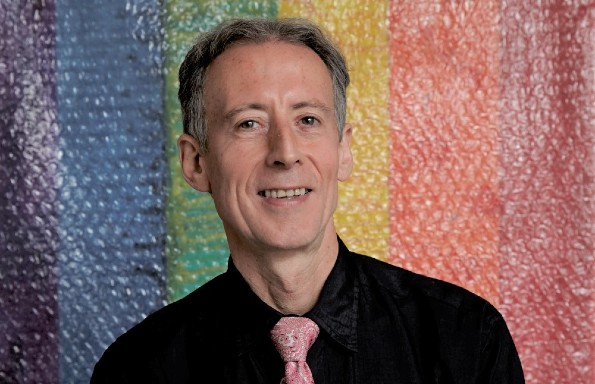Peter Tatchell – Because We Exist: What’s Next for LGBTQIA+ Human Rights?

The School of Arts have teamed up with WoWFest2021, with students from across the School previewing events from this festival of radical writing, taking place throughout May.
Jodie Brown (year 1, English) previews Peter Tatchell – Because We Exist: What’s Next for LGBTQIA+ Human Rights?, Tuesday 18 May, 7.30 pm. Tickets £10/£5 concessions.
Over the past few decades huge progress has been made in LGBTQIA+ human rights in the UK. The Human Rights Act of 1998 set a path for LGBTQIA+ law reforms, such as the 2010 Equality Act, which protected LGBTQIA+ people from discrimination in the workplace. Milestones such as the 2004 Gender Recognition Act and the Same Sex Couples Act 2013 mark great advancements. But it is key to remember that LGBTQIA+ rights are fragile. And equality across the community is still to be achieved. There is a long way to go, not just in terms of the law but in society too. We saw a societal divide, for example, in protests in major cities like Birmingham and Manchester over the introduction of LGBTQIA+ inclusive Relationships, Sex and Health Education in 2019.
The UK still needs to take the following steps in the case of LGBTQIA+ rights:
- Ban conversion therapy. Back in 2018 the government promised to ban conversion therapy. But there has been little to no progress since then.
- Decrease Gender Recognition Clinic waiting times: they seem to be on the rise.
- Reformation of the 2004 Gender Recognition Act (A recent petition to make non-binary a legal gender identity has reached over 120,000 signatures.)
- UNAIDS said the UK government had informed the organization that it will receive £2.5 million in funding for 2021. It received £15 million from the UK in 2020. So, this represents a major cut of £12.5 million – more than 80 per cent – in funding to an organization that helps fight HIV and AIDS. Help can’t be given if cuts to funding are being made.
- Gay and bi men still cannot donate blood for 3 months after having sex.
- Hospitals carry out nonconsensual procedures on intersex children.
- Transgender prisoners are imprisoned in accordance with their legal gender.
- Stop LGBTQIA+ orientated violence, harassment and discrimination.
- Ensure LGBTQIA+ safe spaces are funded properly.
The present awareness of LGBTQIA+ human rights is the result of a decades-long journey, gaining most traction from the 1960s onwards. Peter Tatchell has been along for this ride, having started his activism in the early 70s as a pioneer for the Gay Liberation Front. His experience and understanding will make this event a key opportunity to engage with the LGBTQIA+ community. Alongside Tatchell will be journalist Ben Hunte, the BBC’s first LGBT Correspondent. Hunte is known for his breakthrough stories on sexuality and gender, including reporting on Africa. His presence on the panel brings a much-needed intersectional, and international, perspective.
Worldwide, 72 countries criminalize same-sex relationships. And in more than half the world, LGBTQIA+ people may not have their rights fully protected by law. Closer to home, Liverpool has a long history when it comes to being an LGBTQIA+ city. It is often said to be one of the most inclusive cities in the UK, and was one of the first councils to grant marriage ceremonies for gay couples, prior to legalization. The city is full of LGBTQIA+ significant locations, including the gay quarter in the heart of the city center. However, Liverpool is still haunted by an echoing past of societal homophobia and hate crime. Between 2011 and 2018 reported hate crimes on LGBTQIA+ people in Liverpool had more than tripled.
The rise of the far right over the past decade has threatened the security of LGBTQIA+ people. It is important as a society we take steps forwards, not back. This has been seen in recent times through the Black Trans Lives Matter movement. In a world of intersectional politics and overlapping regimes of oppression, it is vital to understand the importance of human rights on every level. This is what this event is all about. Mapping our past as a community and interpreting our present, we can make a better future. By recognizing the issues we have not yet overcome, we can create clearer objectives for our next milestone.
Part of WoWFest21: celebrating 21 years of radical writing. Check out the full programme here.